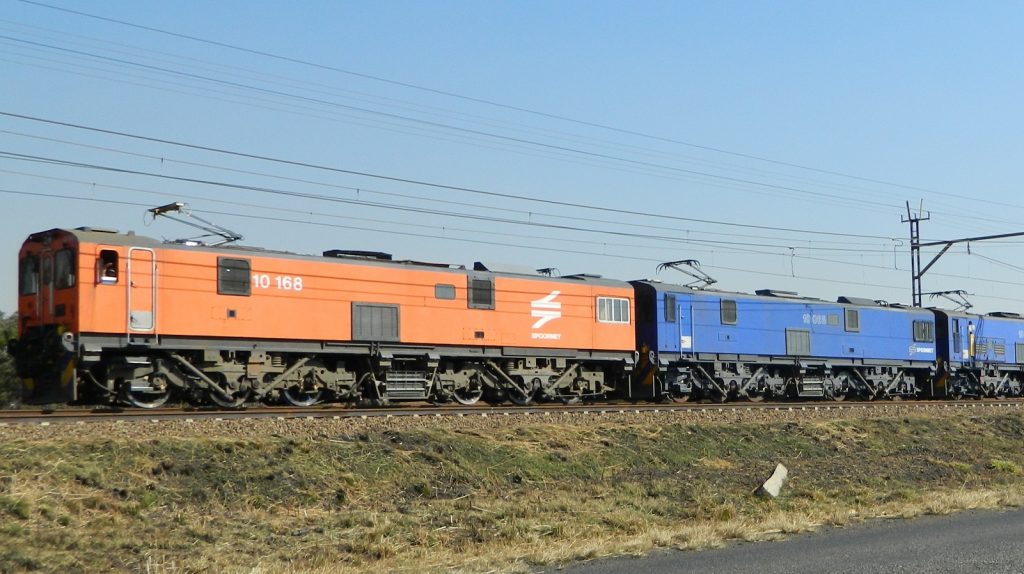While Transnet officials today continue their testimony before the Zondo Commission into state capture, Transnet has been hit by a new saga involving a top Johannesburg-based startup.
EmptyTrips founder Benji Coetzee has accused state-owned enterprise Transnet Freight Rail (TFR) of killing a R47-million a year cargo contract that the logistics startup had signed with brewer AB-Inbev.
No ad to show here.
While TFR claims it pulled a cargo load of beer the startup was handling because of technical reasons, Coetzee believes more sinister motives were behind the state-owned enterprise’s decision to pull the load at the last minute.
Empty Trips has accused Transnet of killing a R47-million contract with beer maker AB-Inbev.
Coetzee says her startup had spent a year finalising the contract with AB-Inbev, which would have helped slash the cost of transporting beer to Zambia by 32%, while having significant environmental benefits, she says.
The startup’s online marketplace uses algorithms and an auction system to match and connect spare capacity on vehicles and trains to those requiring goods to be transported.
The idea was to fill trains returning from Zambia with copper, with goods that could be shipped back by rail instead of by road, on trains that otherwise would have been empty.
But it was not to be, as in February, the first consignment of Budweiser beer destined for Zambia consisting of two containers, was pulled as it stood ready to be loaded at a Johannesburg cargo terminal.
Coetzee says this has effectively dashed her startup’s chances of completing a R47-million contract for the beer giant.
She claims that both containers were below weight and that the startup had complied with all the necessary safety conditions.
She says she was told that Transnet pulled the containers, because the load had to be placed over two wagons and not one. “It was purely just dissonance,” says Coetzee.
On top of this, she says she is still waiting for Transnet to refund the R48 000 rail costs it owes her business.
‘Pulled for infrastructural challenges’
TFR spokesperson Mike Asefovitz told Ventureburn this week that the request for placing the two containers on the train bound for Zambia from Transnet’s Denver terminal had come from shipping line Grindrod, which acted as the broker for Empty Trips.
Asefovitz said the loading of the containers was halted because of “infrastructural challenges”.
“A trial run was planned for two containers to Zambia — one to Ndola and the other to Lusaka — from Denver. The customer (Grindrod) applied through the intent process which was declined by TFR Planning due to operational challenges in finding a link for the single cross-border wagon — there was no train available from across the Zimbabwe border to pick up the two containers,” he said.
He said this information was shared with Grindrod and the boxes were switched to road due to the shelf life of the product.
Ghost trains
But Coetzee believes her campaign to expose what is commonly referred to by railway workers as “ghost trains”, is what is really behind her losing the R47-million-a-year contract.
She said the trouble began when she and Grindrod last year carried out a pilot with Transnet to measure the weight of loads that trains transport on the Johannesburg-Durban corridor.
The pilot involved her having to sit close to Ladysmith train station for a week and count the number of wagons each train was pulling and conducting weight-time readings.
The shipping manifests listed several of the 10 goods trains that passed the station during the week as empty. However her measurements showed that most of those that were listed as empty in fact had heavy loads.
After speaking to old railway workers on her findings, they told her of a common practice referred to in the industry as “ghost trains”.
This involved trains that were transporting empty containers being loaded with illicit or undeclared goods, which would then be emptied at a siding before entering Johannesburg.
Transnet charges shipping companies about R2500 a container for hauling empty containers, significantly lower than the R8000 it charges for containers that are full, she says.
This, she says, means that someone is “profiteering” by either underpaying or paying nothing to Transnet to ship goods.
She says after she spoke out about the practice at several events last year, including a SingularityU event in October, she began receiving several aggressive phone calls from unknown men.
She said as a result she spent 10 days in November last year “off the grid” in the Natal Midlands recuperating.
“Investors told me to pull out of the sector and to stop talking about rail, as my safety was more important,” she said.
Coetzee claims that when she reported the issue to Transnet commercial executive Gert de Beer, he told her that the state-owned enterprise would investigate the matter.
But TFR’s Asefovitz said TFR is satisfied that it has sufficient controls in place such as “train and movement planning, centralised traffic control, weigh bridges and how containers are loaded to prevent them from being opened”, to prevent such “alleged incidences”.
Asefovitz however did not respond to a subsequent request to comment on whether or not De Beer’s office had indeed carried out an investigation into the threats against Coetzee.
When initially contacted for comment on the saga by Ventureburn, De Beer declined to comment and referred all queries to the company’s communication’s department.
Neither Grindrod Rail chief executive Andrew Thomas or consultant Mark Reed responded to Ventureburn’s request for comment.
But despite losing the R47-million contract, Coetzee says Empty Trips continues to work with commodity traders and rail operators in Mozambique and Tanzania.
Featured image: Bob Adams via Flickr (CC BY 2.0)
